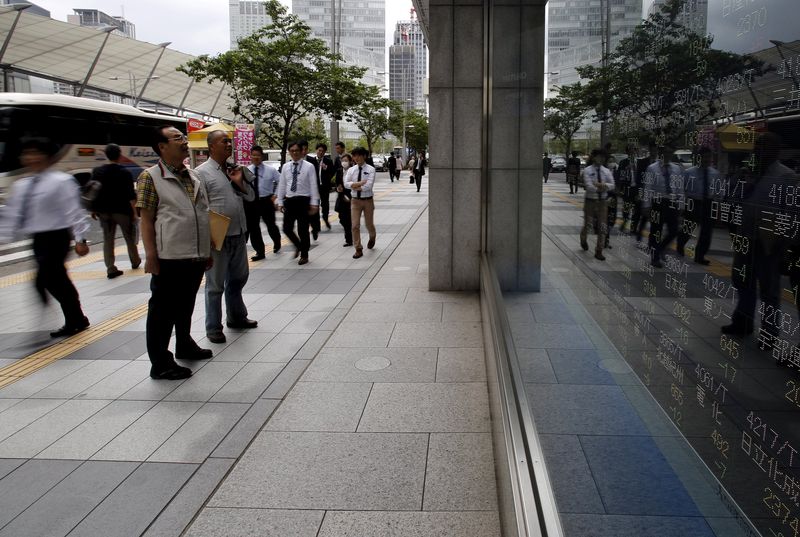By Gina Lee
Investing.com – Asia Pacific stocks were mixed Monday morning, with bond yields and inflation worries continuing to mount. Investors also digested Turkey’s surprise central bank governor replacement.
Japan’s Nikkei 225 fell 1.92% by 11:16 PM ET (3:16 AM GMT) while South Korea’s KOSPI edged up 0.16%.
In Australia, the ASX 200 was up 0.64%.
Hong Kong’s Hang Seng index was down 0.21%.
China’s Shanghai Composite gained 0.84% while the Shenzhen Component inched down 0.10%. The People’s Bank of China released its loan prime rate earlier in the day.
The Turkish lira slid as much as 15% in early Asian trading after President Recep Tayyip Erdoğan replaced hawkish central bank governor Naci Agbal with Sahap Kavcioglu over the weekend. The move came two days after a sharp rate hike aimed at controlling inflation near 16% and supporting the lira.
Investors are also focusing on the outcome of a slew of U.S. Treasury auctions of two-, five- and seven-year debt later in the week. Ten-year yields dropped below 1.70%, hovering near the highest levels in about 14 months.
Worries about potential higher interest rates continue to dominate equity and bond markets, driving yields ever higher and fuelling a rotation out of growth into value shares. An improving growth outlook could cause the U.S. Federal Reserve to tighten monetary policy sooner than suggested by its current guidance. However, Fed Chairman Jerome Powell reiterated in a Wall Street Journal editorial that the Fed will provide aid to the economy “for as long as it takes.”
Investors will also look to Powell’s comments at the BIS Innovation Summit, taking place virtually later in the day. Other speakers at the summit include the European Central Bank’s Christine Lagarde and the Bank of England’s Andrew Bailey.
Powell will also make his first joint appearance with Treasury Secretary Janet Yellen before the U.S. House Financial Services Committee on Tuesday, where they will testify on Fed and Treasury pandemic policies respectively.
“Clearly, the market is skeptical that the Fed will be able to keep interest rates at current levels for the next three years... we think that nominal bond yields can still shoot higher in the short-term towards 2% and above on inflation concerns. Markets are likely to worry that this move is permanent, rather than temporary,” Diana Mousina, senior economist in the multi-asset group at AMP (OTC:AMLTF) Capital Investors Ltd., said in a note.
The Mar. 31 deadline for a central-bank exemption allowing lenders to load up on Treasuries and deposits without setting aside extra capital to cushion losses is also approaching, with the regulator planning further changes to this supplementary leverage ratio.
